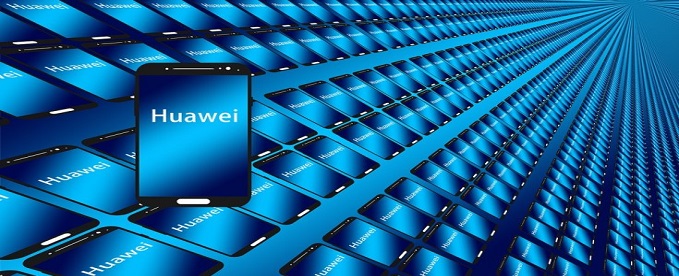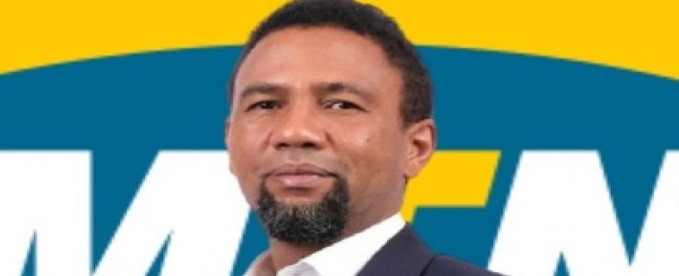Telecom
Some Nigerians Warn of China’s Growing Influence in African Technology

Some Nigerian-based experts warn there could be potential negative impacts of China’s growing tech influence in Africa.
This is coming as Huawei, Chinese telecommunications giant said it wants to train up to 3 million African youths to work with cutting-edge digital technology such as artificial intelligence. Voice of America (VOA) reported that already, Nigerian students who took part in a Huawei-sponsored information and communications technology (ICT) competition say the benefits, including possible job placements with the company, are enormous.

Pix credit ………………………….Pixabay
Muhammad Maihaja, Computer engineering finalist is set to graduate from the Ahmadu Bello University in Nigeria’s Kaduna state in November.
In 2019, he was part of a team of six from the school who represented Nigeria at the global Huawei ICT competition in Shenzhen, China, where they finished in third place.
Huawei introduced the competition to Africa in 2014 to identify and nurture highly skilled ICT professionals — what the company says is part of its expanding talent search in Africa’s tech sector that has benefited some 2,000 African students like Maihaja.
“We have been exposed to devices and technologies we’ve never experienced before. As normal university students, we would not have experienced what we did experience in the competition. So, I’ll say … this has made me much more ICT inclined, so to say,” Maihaja said.
The competition evaluates students’ competence in network and cloud technology.
Maihaja and his team’s success in 2019 was a rare achievement for an African team, let alone a first-time participant.
The feat inspired many other students like Hamza Atabor who tried out for the next edition in 2020. He and the other Nigerian students this time won the competition.
“I was inspired by, you know, when they talked about their stories, how they won the competition, and also when they were given their prizes and everything. I just felt, OK, this is something to actually make a sacrifice for,” Atabor said.
Students like Maihaja and Atabor are meeting Huawei’s set objective, but critics say the company is only a fragment of China’s fast-paced dominance in Africa’s technology landscape.
Huawei reportedly accounts for more than 70% of the continent’s telecommunications network.
Mohammed Bashir Muazu, a professor of computer engineering at Ahmadu Bello University, said it’s no surprise China is gaining traction in Africa.
“Seeing the level of technological developments in China, I think what is actually happening is inevitable,” Muazu said.
Concerns about China’s presence in Africa grew in 2019 after U.S. newspaper, The Wall Street Journal, reported that Huawei had helped Ugandan and Zambian authorities spy on political opponents.
Huawei denied the accusations and declined an interview on the matter.
But Samuel Adekola, ICT expert said China could use its competitive advantage for selfish gains.
“It’s really dangerous. I cannot quantify how much they could do, but whoever has data, you can do a lot of things. You have a lot of information about a group of people, the nation,” Adekola said.
As long as China continues to invest in Africa, students like Maihaja and Atabor will learn valuable skills, even though experts say Africa may have to pay a price for relying too heavily on foreign companies.
Telecom
PAT Taps Osi as CEO

Pan African Towers (PAT), a Nigerian infrastructure provider serving 9mobile and Spectranet, has appointed Echezona Osi as chief executive officer.

Echezona Osi
Adefolarin Ogunsanya, company’s, board chairman, explained in a statement that Osi would succeed Oladipo Badru, whose tenure lasted nine months in acting CEO position. Osi has more than 28 years of experience in the telecommunications sector across various regions of Africa.
Prior to his appointment as CEO, he had served as the head of network deployment at Airtel Nigeria, operations director and chief technical information officer at MIC Tanzania, chief technology officer roles at IPT PowerTech Nigeria, Rhino Niger Networks and Biswal Nigeria.
He obtained a degree in electrical/ electronic engineering from the University of Benin and a postgraduate diploma in data science and business analytics from the University of Texas.
Telecom
NCC Introduces N10m Licence Fee for Bulk SMS Service

Companies sending bulk international text messages, also known as Application-to-Person (A2P) messages, will now have apply for a licence that costs N10 million.

This is part of new rules introduced by the Nigerian Communications Commission (NCC) aimed at cleaning up the system, fighting fraud, blocking spam messages and stopping money from leaving the country unchecked.
These A2P messages are the kind customers get from banks, online stores, hospitals and political campaigns, automated texts sent from apps to their phones.
According to the commission, the bulk international text message system has been poorly regulated, allowing misuse and invasion of privacy.
“The International SMS Service Ecosystem in Nigeria has not been fully brought under regulatory control. It has been observed that the excessive use of the Short Message Service has led to fraud, spam and illegal activities,” the NCC said.
The regulator warned that without action, the problem would worsen as more people use mobile phones and digital services.
To solve this, the NCC is creating a central platform, or gateway, through which all international bulk text messages must pass through.
The agency said this would help to monitor messages in real time, ensure proper fees are paid, and make sure the money stays in Nigeria where it can contribute to the economy.
As part of the incoming change, service providers must follow strict rules, including strong data protection, spam filters, and message encryption.
Also, they must also work with local mobile networks and make sure all messages come from a verified sender
The NCC warned that any message without a proper sender ID will be blocked and not delivered to users.
To protect users from unwanted texts, the new rules say companies must get clear permission before sending any promotional content.
The rule also says people must also be able to choose whether they want to receive such messages or not.
Companies are now required to keep records of all messages for at least six months and must clearly state all charges involved.
The NCC said fees for help requests, cancellations, or service info must be transparent and not include hidden charges.
The commission will issue licences to several providers to encourage healthy competition but may limit new licences if needed.
Only companies that show they can stop fraud and safely deliver messages will be allowed to operate. They must also regularly report their message traffic and finances to the NCC.
It warned that any company that breaks the rules risks getting fined, suspended, or having its licence revoked.
Offences like charging illegal tariffs, ignoring security rules, or avoiding taxes will be punished, the NCC said.
The commission added that the new rules follow the Nigerian Data Protection Act 2023 and support the federal government’s goal of strengthening cybersecurity and controlling Nigeria’s digital space.
The framework will also be reviewed from time to time to keep up with new technology and market trends.
Telecom
MTN Nigeria Targets $1Bn Cloud Market with Largest Modular Data Centre

MTN Nigeria has launched what it claims is the country’s largest prefabricated modular data centre, marking a bold push into the country’s fast-growing cloud market and taking aim at global giants such as Amazon Web Services, Microsoft Azure and Google Cloud.

Karl Toriola, CEO, MTN Nigeria.
The shift comes as demand for cloud services in Nigeria soars — driven by the uptake of mobile apps, fintech tools and e-learning platforms — while foreign providers have become costlier in the wake of the naira’s sharp devaluation.
“This is one of the biggest data centres in West Africa and probably one of the biggest in Africa,” said Karl Toriola, CEO, MTN Nigeria.
He described the new Tier III-certified facility, with locally hosted cloud services, as “transformative for the technology ecosystem in Nigeria and very supportive of the federal government’s agenda”.
MTN Nigeria, the country’s largest telecoms provider, has so far invested $120m in the first phase, delivering an IT load of 4.5MW. A second phase, set to double capacity to 9MW, is budgeted at $135m.
“We already have data centres that are running our existing capacities,” Toriola said.
“We will go to 9MW in short order, possibly 14MW, and we can expand even further.”
He said the facility would allow local hosting for tech developers, large enterprises including banks and oil companies, and government agencies — markets long dominated by foreign cloud providers.
“Multinational companies such as Netflix, Facebook and Instagram can also host a lot of their data here. That improves the quality of service and reduces the cost of storage,” he added.

 Broadcasting2 days ago
Broadcasting2 days agoNigeria Week Ahead: Inflation, Oil and Naira in focus

 News2 days ago
News2 days agoEFCC: Accusations Against Our Chairman Are Baseless and Misleading

 Telecom21 hours ago
Telecom21 hours agoMTN Nigeria Targets $1Bn Cloud Market with Largest Modular Data Centre

 Telecom21 hours ago
Telecom21 hours agoNCC Introduces N10m Licence Fee for Bulk SMS Service

 E-Business21 hours ago
E-Business21 hours agoFirm Highlights Top Risks of Quantum Computing

 General News21 hours ago
General News21 hours agoAM Best Reaffirms Stable Outlook for Cyber Insurance Market

 General News21 hours ago
General News21 hours agoWoodhall Capital and Partners Launch ₦1.5Bn Fund

 General News21 hours ago
General News21 hours agoBurna Boy Distances Himself from Meme Coin, Labels Crypto as Fraud
























